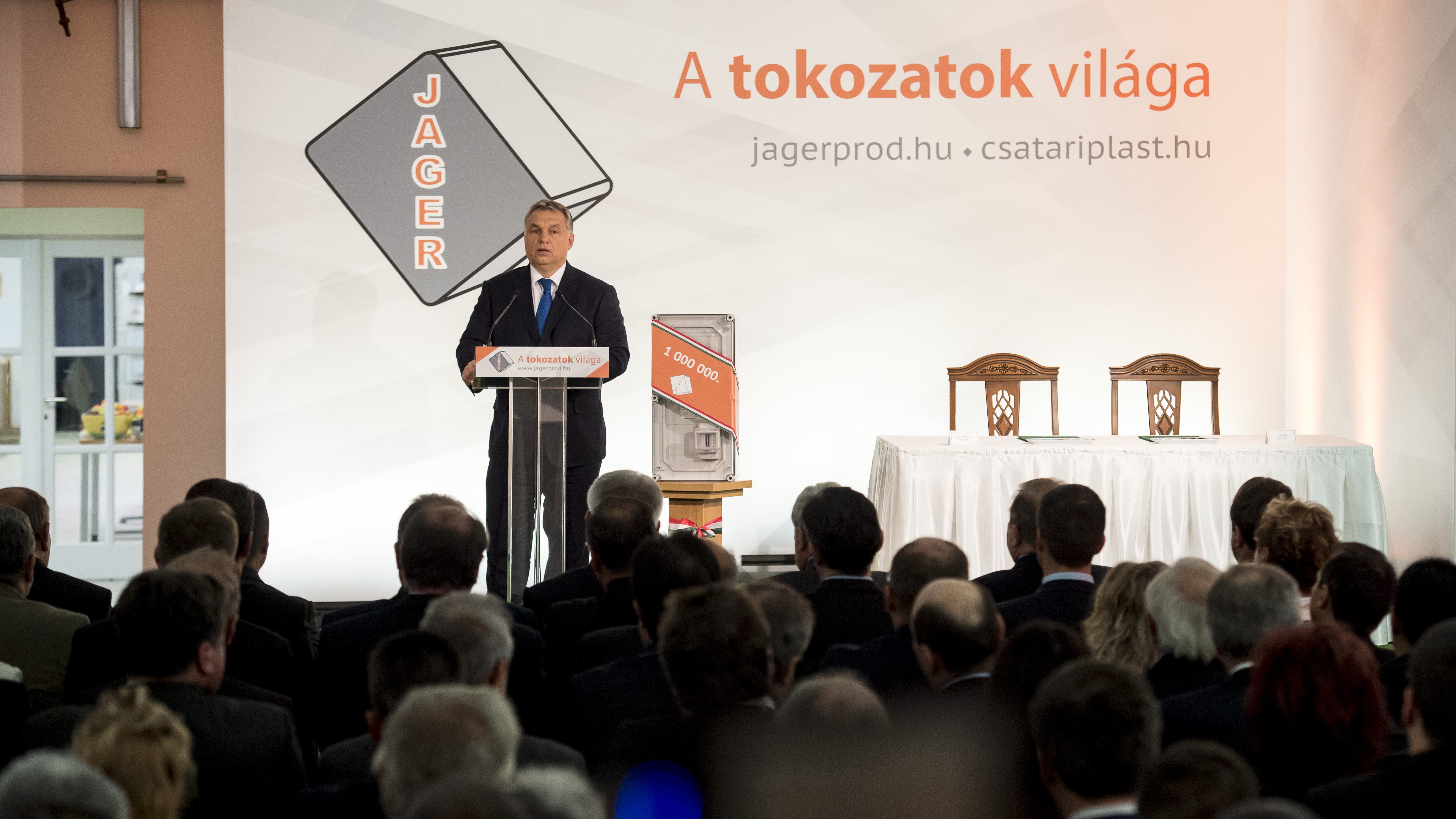
Mr. Orbán was speaking at a ceremony held to mark handover of the one-millionth electrical meter box produced by Csatári Plast Kft., which is part of the Jáger Group. He said that, with the assistance of Hungarian businesses such as Csatári Plast, the Hungarian economy can finally find its way out of the predicament it found itself in during the economic crisis.
He added that the role of national capital and the national economy is becoming increasingly important, and while Europe’s markets are becoming more open, individual countries are making every effort to help their respective national economies advance. It clearly testifies to the development of the Hungarian economy that the number of people in employment has risen to 4,391,000, and Hungary’s economic growth rate is also one of the highest in the European Union, the Prime Minister stressed.

He said that the 2008 economic crisis clearly demonstrated that the Hungarian economy had become lopsided, as Hungarian businesses had long been neglected, foreign capital was expected to bring about deliverance, and the generally held view was that it was primarily large corporations which should be responsible for major projects.
Even at the time of the fall of communism, however, there were businesses which were not afraid to use the opportunities they had. These were partly family businesses which started from “garages” in the second half of the eighties, and have now become successful enterprises, Mr. Orbán said. Thanks to this attitude, in Herend a world brand is spreading its wings: László Csatári created a successful Hungarian brand from nothing, he said.
He also said that funding of HUF 12,000 billion has been made available to businesses. The goal is to use this sum effectively, and today the only question is whether we can use our opportunities, Mr. Orbán added.
László Csatári, Managing Director of the Csatári Group, said that in Hungary integrity and hard work can lead to a decent quality of life, adding that credit for the achievement should not go to a single individual, but to a community. Answering a question from Hungarian news agency MTI, he said that the company has branches in two locations in Hungary: in Herend and in Nemesvámos. In addition to meter boxes, they make earthenware products and coverings made from recycled plastic.
The company’s sales revenues will amount to some HUF 3 billion this year, half of which comes from exports, and the company’s net pre-tax profit will be around HUF 300 million. The Nemesvámos and Herend branches have some 150 employees in total. The company’s most important Hungarian partners are electricity suppliers and electrical wholesale networks. Its main foreign partners are from Germany, Romania, Slovakia, Canada and Singapore.
The Managing Director stated that the Jáger Group’s predecessor, Csatári Plast, started as a private enterprise in 1987, and was initially a supplier of machine-cut parts. At the beginning of the 1990s, it started the production of plastic components in electrical systems. In 1993 the business had its own production facility, where it employed 30 people. The company has also made parts for Magyar Suzuki since 1997, and since 2000 they have solely specialised in the development and production of electrical casings.
The business’s first foreign subsidiary was established in Romania in 2008, and in the same year they purchased the Herend Majolica Manufactory. Mr. Csatári added that the following are members of the Jáger Group: Csatári Plast Kft., Jáger Prod Kft., Jáger Invest Kft. and Jáger Comp Kft.